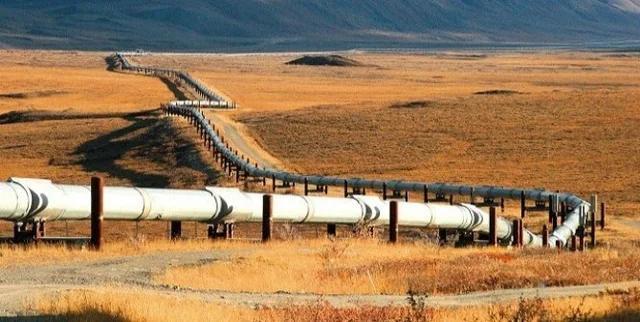Abba Hamisu Sani
Africa-Press – Nigeria. The seven hundred thousand Kilometers gas pipeline project that will connect Nigeria and Morocco then to Europe is a strategic investment initiated by the two African Countries.
The two countries Nigeria and Morocco proposed the Project in December 2016 in an agreement between the Nigerian National Petroleum Company Limited -NNPCL and its Moroccan counterpart Moroccan Office National des Hydrocarbures et des Mines.
When completed the initiative will contribute towards enhancing the monetisation of the natural gas resources of the affected African countries and will also serve as an alternative export route to Europe, especially at this time that the major gas supplier to Europe Russia is not in good term with European countries because of it’s war with Ukraine which created much disagreement between the two business partners.
The pipeline project will increase the country’s revenue, diversify Nigeria’s gas export routes, and eliminate gas flaring. It will also help in supplying gas to Morocco, 13 nations in the Economic Community of West African States (ECOWAS), and Europe; it will also give other nations along the pipeline route a way to develop and export their gas.
The starting point of the Project
Nigeria Morocco Gas Pipeline project is 48 inches wide by 5,300 kilometers long (offshore) from Barss Island in the Niger Delta to Dakhla, Morocco, and 56 inches wide by 1,700 kilometers long (onshore) from Dakhla, Morocco, to the Maghreb European Pipeline (MEP). Its overall length is around 7,000 kilometers, with about thirteen compressor stations.
Originating from Brass Island, the pipeline will terminate north of Morocco, where it will be connected to the existing MEP that originates from Algeria (via Morocco) to Spain. It is also described to be an extension of the existing west African Gas pipeline
which runs from Lagos, Nigeria, connecting to Cotonou, Benin; Lome ́, Togo; and Tema and Takoradi.
Will the Niger Coup affect the project
Niger Republic which is one of the West African Countries that the pipeline project passes through is now under Military leadership as a result of a coup d’etat which was vehemently rejected by Nigerian government and ECOWAS leadership under the Nigerian President Bola Tinubu.
Nigeria’s position against Niger Junta can affect whatever interest Nigeria has in the Niger Republic, particularly this giant Project that Nigeria has made huge investment on.
Another source of concern is that some experts expressed their fear on how long the project will take to be completed coupled with the instability in the region particularly west African nations that the pipe line passes through.
Funding issues ,and environmental health impact
Chigozie Nweke-Eze, is the Chief Executive Officer of Integrated Africa Power.He S the project would help Nigeria, Morocco and other countries involved to grow external revenue and balance exchange rates due to exports.
Nweke Eze said that Europe’s dire need for an alternative source of gas to cover gas shortages due to the Russia-Ukraine war benefits both continents. However, he urged that Africa show constraint considering how long it will take for the pipeline project to be completed to avoid disappointment.
“But at the same time we have to be careful, how long will it take for this pipeline to be finished? By the time it finishes, will there be other deals that the European Union will make with other countries already ready to export?
It’s something to think carefully so we don’t also come to a situation where we have stranded infrastructures, so we have to be careful in the timing of delivery and also in agreeing to make sure we don’t finish the pipeline and it ends up that no one needs the gas anymore,” he said.
The huge risk attached to the project
Adedolapo Raji, is an energy advisor at Lagos-based Thwaite Energy Limited.She said Nigeria should prioritize domestic gas utilization to match its
gas-to-power needs to drive economic development over supporting Europe to solve its issues.
Raji added that there are huge vulnerabilities around the project, including security challenges, funding, lack of timeline, diplomatic concerns and regional instability. She also noted that there were too many countries in multiple African regions to ensure a smooth transition in the project delivery.
The energy advisor said that one of the key project rationale is anchored on a geopolitical context marked by strong international demand for oil and gas, market disruptions and price volatility following Russia’s invasion of Ukraine.
She also questioned why Morocco decided not to build a gasification facility and acquire LNG carriers.
“Is this not more cost-effective than embarking on an extensive undersea gas pipeline?, added.
Upon the completion of the Phase II of the feasibility study, partially funded by OPEC, more specifics regarding the viability and techno-commercial feasibility of the project will be established, and part of the above-stated vulnerabilities as well as critical questions addressed.” She said
The hazards and the environmental issues need to be considered
Damilola Oguntade, a sustainability expert, noted that despite the project’s economic benefit, there is significant associated environmental harm due to increased extraction and consumption of fossil resources.
“Correspondingly, the extraction, transportation and use of fossil fuels already have considerable environmental implications ranging from the risks of leaks, fires and explosions related to corrosion and navigation. Additionally, the methane emissions from this gas project can potentially destroy the livelihoods of millions of people who depend on fisheries and farming as sustenance along these regional waters.” He said.
Oguntade said it is crucial to interrogate the extent of compliance with environmental impact assessment standards and consult with the members of the local communities whose livelihoods depend on the coastal regions in which this gas pipeline would run and the climate resilience of their communities as a whole in the long term.
“Overall, it is crucial to strike a delicate balance between the appraised economic and geopolitical importance of this project (and whether or not it will directly benefit the people) and its real environmental impact on the regional waters and the inhabitants of these coastal areas as the latter seems to outweigh the former, labeling the project as unsustainable in the present and long-term future.” The Expert stated
Nigeria should be cautious in dealing with Niger Junta
However the multi billion dollar project is a huge investment for Nigeria and Morocco which passes through different African countries including Niger Republic.
Nigeria being the Country with such investment should have been very careful when dealing with Niger Junta as at the end of the day it will be the end loser if the Niger government under Military decides to harm those pipes that pass through their Country as other ECOWAS members have less to lose.
With such investment of 25 billion dollars it sounds like taking an unnecessary risk to engage in any action that can lead the neighboring Niger to react in a negative way to the Nigerian giant investment.
Another site to be looked at is the position of Russia on Nigeria’s Military coup as it supports the Junta while many European countries are against it. And it is the same Europe that ,the Nigerian Morocco gas pipeline is linking to in order to counter Russia as the main supplier of gas to the Europe
So Nigeria and Morocco should avoid any attempt capable of distorting their project which is expected to be a game changer in International business space.
For More News And Analysis About Nigeria Follow Africa-Press







